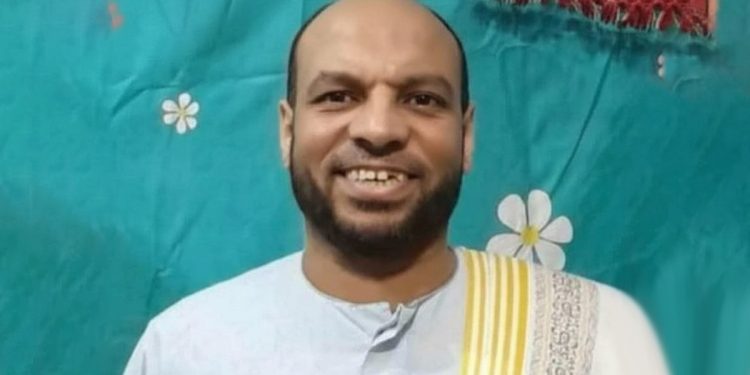In a tragic scene that has become all too familiar within Egyptian prisons, political detainee Ahmed Mahmoud Mohamed Said, 48, died inside Giza Central Prison (Kilo 10.5) after a long struggle with thyroid cancer and deliberate deprivation of medical treatment and adequate care.
Ahmed, a native of Nahya village in Kerdasa, Giza Governorate, was diagnosed with the disease more than two years ago. Medical tests confirmed that his condition was in an advanced stage, yet the prison administration refused to transfer him to a specialised facility for chemotherapy, limiting his care to superficial medical procedures that failed to address the seriousness of his condition.
His health deteriorated rapidly as a result. He was transferred briefly to Qasr al-Aini Hospital, only to be returned soon afterwards to his cell, where he breathed his last on the evening of Saturday, 8 November, his head resting on the leg of a fellow inmate.
This case reflects a wider crisis within Egypt’s prison system, where serious illnesses and chronic diseases often turn into slow death sentences due to medical negligence and the systematic denial of prisoners’ most basic rights to treatment.
The continued imprisonment of seriously ill detainees directly contravenes Article 486 of the Egyptian Code of Criminal Procedure, which allows for the postponement of a sentence if the prisoner suffers from a life-threatening illness. It also violates Article 56 of the Egyptian Constitution, which stipulates that “prison is a place for reform and rehabilitation, and any act that undermines human dignity or endangers health is prohibited.”
Despite these explicit provisions, hundreds of detainees are denied medical release, with their detention repeatedly renewed in disregard of medical reports and appeals by families and lawyers. This exposes a deep structural failure in the mechanisms of judicial and humanitarian oversight over places of detention.
The late Ahmed Mahmoud had spent around eight years behind bars. In October 2022, he was granted a court order for release on bail, but the security services “reinvolved” him into a new case in a practice that has become a systematic tool to extend arbitrary detention and render judicial rulings meaningless.
Ahmed Mahmoud’s death joins a growing list of fatalities inside Egyptian prisons, caused by medical neglect, lack of accountability, and the denial of healthcare phenomena that are steadily expanding amid weak oversight of detention facilities and the executive authority’s encroachment on the guarantees of justice.
This tragedy underscores the urgent need for immediate action to save the remaining ill detainees by enforcing the laws that permit medical release, ensuring the transfer of seriously ill prisoners to specialised hospitals at the state’s expense, and ending the policy of “recycling” detainees despite court orders. It also calls for a comprehensive review of detention and healthcare policies, and the establishment of an independent oversight mechanism with real powers to inspect prisons and investigate cases of death and neglect.



























